The Teacher Stories series gives you first-hand views of what teaching is like! There are so many ways to get into the classroom and so many ways that a classroom experience can look. Our teacher interviews give you an idea of the different teacher stories in the field.
4th and 5th Grade in Denver, Colorado
M. Faulkner is a 4th and 5th grade teacher in a Denver suburb. She loves teaching! Here is what she has to say.
What do you teach and where?
I’ve taught 4th and 5th grade at public school in a city bordering Denver, CO. I teach on a loop, so I have the same students for two years in a row.
What type of school do you teach in?
Our school is a public, IB (International Baccalaureate) designated elementary school.
How long have you been teaching?
3 years.
Can you describe your student population?
The socio-economic status of my students is more diverse than its population. The neighborhood is changing and so are the families who move there. The majority of the student population is white and the free and reduced lunch rate is at 50%.
How is your teaching job similar to other teaching jobs?
What’s similar is that I’m teaching at a traditional public school using the mandated Common Core State Standards. It’s as challenging as it is rewarding.
How is it different?
All students and teachers have iPads for academic use. The district I work in has under 3,000 students that consists of one ECE (early childhood education) school, 4 elementary schools, a middle school, a high school, and an alternative high school that is truly the premier in the state.
What are your favorite things about your school or classroom?
I love that my principal has given teachers the autonomy they need to make necessary choices for his/her classroom while still being able to maintain high standards that adhere to district and state regulations. I have really wonderful students and parents to work with. The parents respect me and my decisions as a teacher.
What do you wish you could change about your school or classroom?
My biggest complaint is class-size. 28 students in my 4th grade class last year was quite challenging. I do not have a paraprofessional or any other assistance. It’s just me! So feeling like I am actually succeeding in my ability to help students grow and do my job really well is hindered by the sheer magnitude of work and straight-up classroom management required of such a large class.
What was your teacher education program like?
I completed my masters with teaching certificate at the University of Denver through a one year intensive program. I also had my daughter in December of this crazy year! We started classes in the summer and then I was an apprentice teacher for an entire year 4 days/week while taking the full load of master’s courses each quarter. It was challenging, engaging, and exactly what I needed to prepare for my job.
What advice would you give to new teachers?
New Teachers: Learn quickly to find a “stopping point” in your planning each afternoon when the school day ends. All of the amazingly wonderful ideas for super engaging lessons will not come to fruition for a while. And it’s okay. Don’t be too hard on yourself. Do the best you can every day. Yes, it’s going to be harder than you even imagined, but it’s going to be so worth it!
Huge thanks to M. Faulkner to giving us an inside view to her teaching experience! Read on for more teacher stories.
Private, Religious School in Nashville, Tennessee
Cristin teaches in a private, religious school in Nashville, Tennessee. She loves the close-knit community of her school and is happy to be teaching there. Her path to teaching had lots of twists and turns. Her path to the classroom may sound like your own! Check out what she has to say.
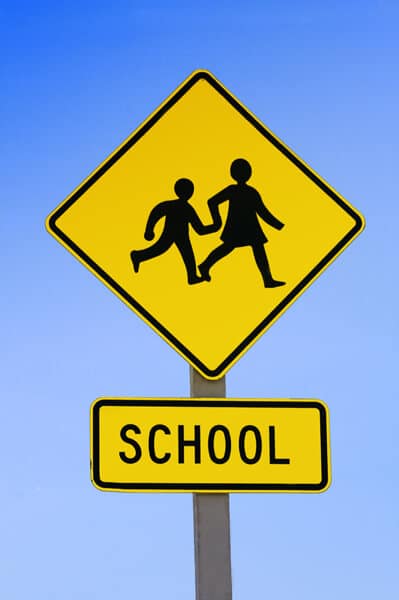
Source: Flickr user Rafael Sato
What do you teach and where?
I teach Sophomore and Junior English in Nashville, Tennessee.
What type of school do you teach in?
A private, religious school.
How long have you been teaching?
This is my second year as a licensed teacher, but I taught preschool for several years before becoming a high school teacher.
Can you describe your student population?
The demographic of my school is mostly white, middle-class. The school is K-12 with an enrollment of ~480. We have a strong special education program, which draws students from Davidson (where Nashville is located) and the surrounding counties, as many families feel the public school system is not well-equipped to serve students who need modifications.
How is your teaching job similar to other teaching jobs?
Some people may assume that, just because I teach at a private school, I have a cushy, carefree job. While my teaching environment is different from that of a public school, we still have students with the same worries, the same fears, the same goals for their future. Like any school, we have behavior problems, and we have to deal with those. A high school teacher is no different from a Kindergarten teacher in a lot of ways – they both care about their students, and they both have students’ best interests – both personally and professionally – at heart.
How is it different?
As a small school that is K-12, we have a sense of community that other schools don’t have. For example, this year I’m teaching Sophomores that I had when they were Freshmen, and student-taught when they were 8th graders. As a result, I have a special bond with them that I don’t necessarily have with students I taught in other grades. Larger schools don’t necessarily see students repeating teachers like they do in small schools, and that can have advantages and disadvantages.
What are your favorite things about your school or classroom?
The sense of community. The relationship we have with the students. Last year a student was killed in a car accident less than two weeks before school started, and it put a cloud over the entire year (see: close-knit community). We ended up winning the football state championship later that year, and I loved watching everyone rally around each other and celebrate that remarkable moment while dedicating it to the student we lost. The students respect the teachers and listen to us (for the most part), but they also feel like we’re their family. Most of them still say “Yes ma’am” and “no ma’am,” which I love.
What do you wish you could change about your school or classroom?
I wish the campus was bigger, which we’re working on. There’s a capital campaign in the works to expand the school. I wish I got paid as much as public school teachers, but that’s kind of the trade-off when you decide to work for a private school.
What was your teacher education program like? Can you describe a bit about the path you took to become a teacher?
My path to teaching is long and full of twists and turns. In a nutshell: I’m 33, and this is my second year teaching. It took me a long time to get where I am now, but, had I started teaching at 22, I’m not sure I would have stuck with it. I taught preschool, I nannied, I subbed, and I got three degrees in between. I did my master’s online, so my student teaching was a little unorthodox compared to other programs. I asked to be placed at the school where I now teach, and I was placed with the same teacher for all 12 weeks. She was amazing, and more than willing to share her expertise with me, and we are now good friends. My path to teaching hopefully can show others that the path doesn’t have to be neat and tidy – some people don’t have it all figured out when they’re 18, or 28, or 38, and that’s okay.
What advice would you give to new teachers?
A lot of teachers will say “don’t be the students’ friend.” Well, sometimes students need a friend. So maybe rephrase it to: “Be their teacher, be their mentor, be their friend, but don’t be their buddy.” Let them see you’re a human being – they don’t respond well to a robot teaching their class. Hold on tight, because that first year will shake you to your core. I can tell you, at 6:25 on the first day of my second year of teaching, it’s so much less stressful and more enjoyable after that first year. First year is a blur, and you’ll cry a lot, but you’ll survive.
Find a mentor you can talk to and get advice from. Be involved. Do what the principal asks you to. Make friends with the secretary and custodial staff. Go to athletic games. Pick a time at night to stop working on school stuff and stick to it. Make time for yourself. Don’t berate yourself for being new and not knowing all there is to know about teaching – you’re not supposed to be the best at something the first time you try it. Make mistakes, learn from them, and forgive yourself for the big mistakes.
Thank you so much to Cristin for sharing her perspective! More teacher stories added each week!
Teaching at a Juvenile Detention Center
I am excited to have Clare McKendry here with us to share her experience teaching in a Juvenile Detention Center. Like all teacher stories, her’s is unique! Read what she has to say about her classroom experience.
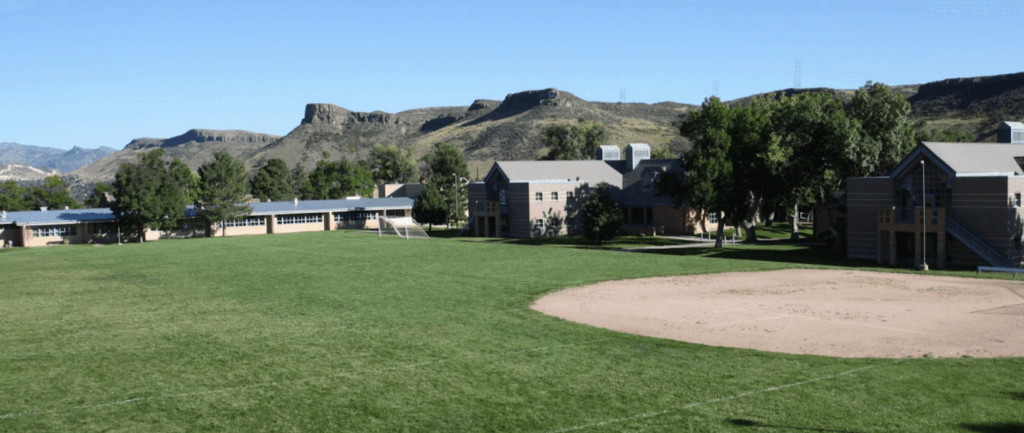
Image from Lookout Mountain Youth Services Center, used with permission.
What do you teach and where?
I teach at Lookout Mountain Academy, which is the school building at Lookout Mountain Youth Services, a juvenile commitment facility in Golden, CO. Lookout Mountain Youth Services is an intensive secure treatment facility, which houses and treats Colorado’s most serious male juvenile offenders. We treat kids starting at age 14 up through the night of their 21st birthday. All of our youth have been committed to the custody of the state of Colorado, meaning they have at least one closed case for which they have been sentenced to a period of incarceration. The minimum stay at Lookout is around 8 months, with an average of stay of around 15 months.
My position is technically as a “permanent substitute teacher and academic support staff.” Basically, because of where we are situated as a facility, we can’t have a normal sub pool or bring in outside teachers last minute. I report to work everyday, and either have a long term sub assignment (more than 1 week), a short term assignment (like when someone is sick), or no assignment. If I have no assignment, I provide support to our other teaching staff by helping with lesson plans, providing in-classroom support, or “processing” with kids who are struggling by pulling them out and talking about their problems and how to work towards a better classroom experience.
What type of school do you teach in?
It’s an incarceration school, so it isn’t public, but isn’t private. All of our youth have uniforms, however, which helps contribute to “real school” feel of the place (khaki pants, blue polos, and great crew neck sweatshirts).
How long have you been teaching?
I started at Lookout in March, 2016, so I’m going on nearly six months. I taught a course in a California facility for around a year before that.
Can you describe your student population?
High needs. Past “at risk.” Most of our students have dropped out of high school at some point, so for some this is the most consistent schooling they’ve received. We have 138 students, with more than half currently or previously on IEPs. Many of those students have both severe emotional distress as well as learning differences. It is nearly unheard of to have two kids in the same class performing at the same level, so flexibility and differentiation are essential.
How is your teaching job similar to other teaching jobs?
I’ve never taught at any other kind of school, and I went to a private boarding school for high school myself, so I don’t feel like I have a good baseline. One thing we struggle with A LOT, that I know is also a challenge elsewhere, is recognizing our students who are always excellent. Its so easy to let a struggling student take over a class; for us, it’s sometimes actually important that you DO let a struggling student take over the class direction because of safety and security concerns. But we do have kids who are consistently killing the game, and its important to reinforce those achievements.
How is it different?
A lot of ways. Our facility policies alone dictate many of those differences. For example, never could I ever duck out of class for a quick second to go to the bathroom, or grab a notebook, or make copies. Not only is it against policy, I can be liable for child abuse or neglect. It’s also common to have a whole class not turn in an assignment. We are working really hard on changing this, and have a wonderful staff who are fine tuning ways to get work out of kids, but it’s a constant struggle. Also, our kids can’t have homework, because they aren’t allowed to carry items to and from their units to school.
What are your favorite things about your school or classroom?
My relationships with my students. Our youth have been jerked around, abandoned, and abused; the credibility you gain by being a person who they know they can see every morning is crazy. I also love how talented our kids are. Many youth come to us having been told that, because they wound up at Lookout, they are somehow “less than” in terms of academics. We have some genuinely gifted and talented youth! We have students whose IQ places them at genius level. I have several youth who are annoyed with me for constantly telling them they need to go to a four year college, and not stop at an associate’s degree. Not enough people tell them they can do it.
My favorite thing about my classroom is The Feelings Chair. The Feelings Chair is a chair, sometimes a desk, that appears in every class I’ve ever subbed in for more than 1 day. It is situated very close to my desk, and some student who is struggling or needs to talk out an issue usually moves it first. Then it stays, and I usually point it out to everyone lightly making fun of it. But every kid, and I mean EVERY KID, who sits in it ends up telling me something personal. Our youth use the phrase “in my feelings” to describe when they are going through something (my mom uses the phrase “in a funk” for similar reasons, but I actually like “in my feelings” better); the feelings chair has become such a well known phenomenon that I have had students advocate for their peers who are having a rough day to go try it out. It’s awesome. They tell me all their secrets, which I often then have to report for safety and security reasons.
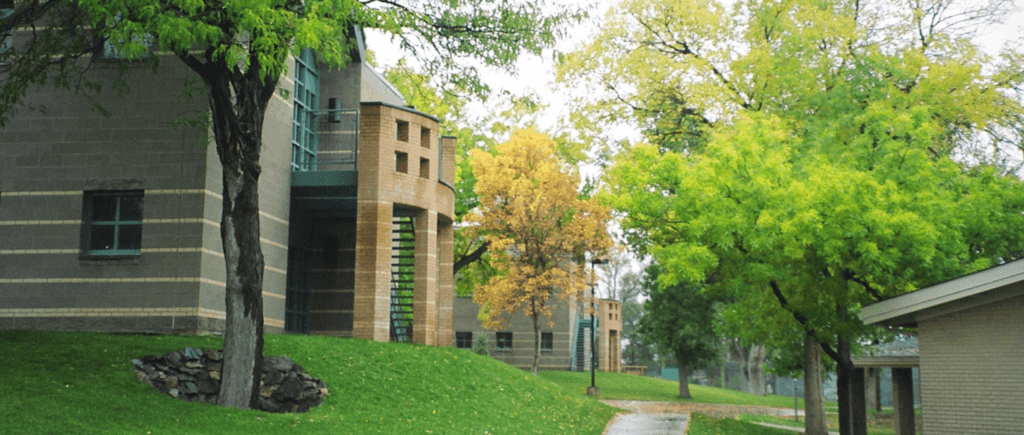
Image from Lookout Mountain Youth Services Center, used with permission.
What do you wish you could change about your school or classroom?
We have a hard time holding on to teachers, and I don’t understand it. It is literally the most rewarding job I have ever had. It’s stressful, and there are certainly things that make it challenging, but right now I can’t imagine doing anything else.
What was your teacher education program like? Can you describe a bit about the path you took to become a teacher?
In 2014, when I was a third year law student at Santa Clara University School of Law, I started volunteering for a nonprofit called Fresh Lifelines for Youth, or FLY. There, I taught a “know your rights” style course at a probationary high school for 6 months. I was promoted to teaching in juvenile hall, where I was stationed for another 6 to 8 months. I was particularly close with the young men in the two maximum security units, though I taught to all levels.
After I graduated from law school, I moved to New York City to work for the Legal Aid Society’s Parole Revocation Defense Unit. For three months I worked on Rikers Island defending men and women who had been taken into custody on parole violations, advocating for either treatment or their release to the community. After three months, I realized NYC was not for me, and I moved to Colorado without much of a plan. I studied for and took the CO Bar, and got my job offer at Lookout three days later. I actually found out I passed the bar while I was subbing in a culinary class. I considered looking more seriously for jobs that require a law license, but it doesn’t feel right to me right now. I’m working with our principal and facility to develop a law education curriculum that would let me use more of my law background, which would be fantastic to get off the ground. Regardless, I’m staying put for awhile.
What advice would you give to new teachers?
You will have bad days, and they will make the victories even better. You will not get through to every student every day, but they are all listening. They may be hungry; sometimes hunger looks like a giant middle finger and a head down on the desk. Do not underestimate your students’ abilities and goals.
Thanks, Clare, for adding your voice to our collection of teacher stories! More teacher stories added each week. 🙂
Kindergarten in a Title I School
Jennifer Wagner just switched to teaching Kindergarten at her school, a Title I school in the small city of Chattanooga, Tennessee. She has agreed to add her experience to our collection of Teacher Stories. Thanks, Jennifer!
What do you teach and where?
I currently teach Kindergarten at Harrison Elementary in Chattanooga, TN.
What type of school do you teach in?
I teach in a Title I public school. We have a very transient population with a lot of children living in poverty.
How long have you been teaching?
This is my 4th year teaching. I spent the two years prior working as an assistant in a special education classroom.
Can you describe your student population?
There is published, public information on our student population. We have almost 75% of our population who, in the past, received free or reduced lunch. Our school now provides free breakfast and lunch for all students since our poverty level is so high. Our children are mostly White or Black, very few are Asian, Latinx, or other ethnicities.
How is your teaching job similar to other teaching jobs?
We follow the Common Core standards, we plan our lessons so that they are aligned with these standards. We provide a safe environment for our students where they can learn, but where they are comfortable to make mistakes.
How is it different?
Our principal holds us to a higher standard than I believe a lot of the other principals in the county. She is very involved, gives a lot of feedback. She pushes us to be the best educators we can be.
What are your favorite things about your school or classroom?
Our school is like a huge family. We are a relatively small school. We have less than 400 students and only a principal, no assistant principal. Our staff knows each other. We are tight knit and so supportive of each other. It means everything to have a strong support system!
What do you wish you could change about your school or classroom?
We are in a building that is very old and is falling apart. I wish I could change that. A lot of the windows are cracked and broken. Most of the rooms run on radiators that break frequently. We have two playgrounds, but neither one is fully functional. Our bathrooms constantly clog and the septic system backs up into the bathrooms.
What was your teacher education program like? Can you describe a bit about the path you took to become a teacher?
My program was not one I would recommend for others. It is ranked very low in national polls and once I began teaching, I could tell. There was very little given to us that could be applied in a practical situation.
I began college in 2006 as a pre-pharmacy major. I spent a year doing that and realized I strongly disliked chemistry, which is a big foundation of pharmacy. I transferred schools in 2007 to University of Tennessee Chattanooga (UTC) and started the Business Management major. A week or two into my second semester at UTC, I realized that I didn’t want to continue in that major because I was afraid I’d end up working retail my whole life. I had spent time in my now mother-in-law’s PreK classroom and made the decision to switch to early childhood education. I spent 3 years completing the program. I spent one semester student teaching. I spent 6 weeks in a 1st grade class, and 6 weeks in a kindergarten class. I took- and passed!- six Praxis exams to get my certification in Early Childhood Education: the Praxis Core, PreK-3rd Grade, general education, and special education. It was difficult to find a job. I spent two years as an assistant in a special ed classroom before I found a job at my current school. I spent one year teaching 2nd grade, 2 years in 1st grade, and now I’m onto Kindergarten!
What advice would you give to new teachers?
Don’t give up. Don’t sweat the small stuff. Always read through your plans the day before and rehearse what you will say and do, especially during transition times. It’s okay to cry, this too shall pass.
Thank you, Jennifer, for telling us your experience, both good and bad. More Teacher Stories next week.
Teaching Choir and Music
I’d like to welcome Mary Davis to Magoosh to add to our collection of Teacher Stories. Mary was actually my third grade teacher, and she always made school so fun! (That also makes it pretty weird feeling to call her by her first name!) She has been teaching for over three decades, so she has a lot of experience to share. 🙂
What do you teach and where?
I teach choir and general music at Rockvale Middle School in Rockvale, Tennessee.
What type of school do you teach in?
We are a rural school. Most of our students are bused from the neighboring communities.
How long have you been teaching?
I have been teaching for 34 years.
Can you describe your student population?
We are socio-economically varied. We have students that are ATLAS (usually temporarily homeless) and students that are from affluent families.
How is your teaching job similar to other teaching jobs?
Kids are kids are kids are kids…Ha! Seriously, I have to do what all teachers do…lesson plans, observations, paperwork, etc.
How is it different?
My “connection” with my kiddos may be different. They choose to be in choir and I have most of them for the three years they are in middle school. Although I’ve always connected with my students no matter what I was teaching, music gives a different dimension to our interaction.
What are your favorite things about your school or classroom?
My favorite thing is the progression and success the kids have over the span of a year. (and sometimes 3 years) They learn many skills that they will use forever.
What do you wish you could change about your school or classroom?
I wish I had a good rehearsal space. (we meet next door to the band…:( )
What was your teacher education program like? Can you describe a bit about the path you took to become a teacher?
I went to school in Beaumont, Texas at Lamar University. I went to school on grants and scholarships. I realize that today, it is almost impossible for students to go through college without debt. I am very thankful that I had the opportunities that I did. I got a degree in Music Education and then later got an additional certification in Tennessee from Trevecca Nazarene College. It allows me to teach any subject grades 1-8. That certification is not offered any more. There were no music positions in all of middle TN when I moved here and so I continued my education to be marketable.
What advice would you give to new teachers?
Get as many endorsements as possible. Although you should have an area of expertise, I believe job security would come with the ability to teach several subjects. For the first time in 15 years, I am teaching 2 reading classes. I absolutely love it and it has kept me challenged!
Thanks again, Mary, for sharing your Teacher Stories with us!
Middle School in New York City
Allison Laird is a middle school teacher at a New York City charter school. She LOVES her job and definitely has lots of teacher stories to share.

What do you teach and where?
Current: 8th Grade Literature in Brownsville, BK @ Achievement First Brownsville Middle School (in my second year in this position)
Previous: 7th Grade Literature in Brownsville, BK @AFBRMS; same school as current position (one year in this seat)
7th Grade Writing in East Harlem, Manhattan @ Democracy Preparatory Harlem Prep Middle (one year in this seat)
7th Grade Writing in Dallas, TX @W.H. Gaston Middle School; traditional public school (three years here)
What type of school do you teach in?
Current: Public charter (four years)
Previous: Traditional public neighborhood school (three years)
How long have you been teaching?
I’ve just started my 7th year.
Can you describe your student population?
Amazing. Smart. Hard working. Thoughtful. Silly. Caring. Helpful. Vivacious.
47% Boys, 53% Girls
98% African American or Hispanic (100% of color)
86% Qualify for Free and Reduced-Price Lunch
How is your teaching job similar to other teaching jobs?
In my personal experience, my current school is similar in that I teach all students of color, the majority of whom are from low-income households. I teach approximately 90 students per year (pretty common) and lead teach one content and grade level (also pretty common).
How is it different?
My current position is different in that I teach a lot of interventions and clubs. This is something that is pretty special to my school (though not completely unique). There are also incredibly high expectations and accountability points at my current position (which is different from any other position I’ve held).
What are your favorite things about your school or classroom?
My favorite thing about my school is of course the children. I love kids, and ours are just the most curious, smartest, grittiest kids ever (I’m totally unbiased).
My second favorite thing about my school is the number of interventions we have for students. We provide classes in math, literature, writing, science, history, and specials (different for each grade; in 8th is art). Besides that, students receive intervention in math and/or reading based on their level.
My next favorite thing is our co-teaching structure. Our school is grades 5-8. 5th and 6th grade teachers co-teach together across-grades, in-content, and the same happens for 7th and 8th grades. For example, I teach Literature for all 8th grade homerooms and co-teach Literature for 7th grade homerooms with kiddos with special learning needs (IEPs; depending, sometimes 504 plans as well). The 7th Grade Lit teacher does the opposite. It’s the same for all contents except for math, whose blocks are double the length of time as everyone else’s and for which we have two teachers per grade to ensure excellent co-teaching in ALL homerooms (my school has historically struggled with math achievement).
What do you wish you could change about your school or classroom?
I wish that I could find a way to be as successful as I have been (or more, for the sake of the kids!) while having more balance. I’m an incredibly efficient worker and work no more than 1 or 2 hours on the weekends, but I end up working about 70 hours M-F. I don’t see how I can do this job with fewer hours given how many different leadership positions I have in addition to teaching.
What was your teacher education program like? Can you describe a bit about the path you took to become a teacher?
I took an atypical path to becoming a teacher. I completed TFA and in my first year of teaching completed an alternative certification program through the traditional public district of which I was a part. Upon moving to NYC, I’ve applied for reciprocity certification and have been taking the exams, completing the workshops, etc., for that certification. I have recently decided upon studying Education Policy for my Master’s Degree and am currently working towards being prepared for that.
What advice would you give to new teachers?
Fake it till you make it! I feel like that one is obligatory.
More importantly and genuinely: Forgive yourself. Give yourself time to fall in love with teaching (it doesn’t necessarily happen all at once, and it ebbs and flows just like anything). Keep yourself happy and healthy outside of teaching. Don’t compare yourself to other teachers. Find your authentic teaching voice. Open up to your students (in an appropriate, meaningful way). Find an outlet to vent to outside of work (mom, friend, significant other) in order to stay student-focused inside of work. Choose one or two small, manageable things to “win on” each week…otherwise, you’ll feel like a failure for your entire career (I’m still learning to do this in my 7th year).
Thank you, Allison, for coming to share your teacher stories and great advice!
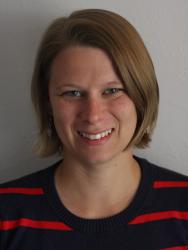

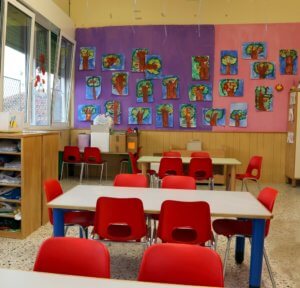
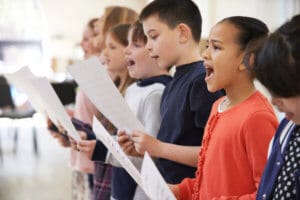
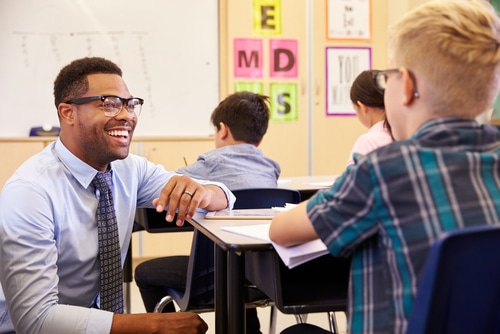
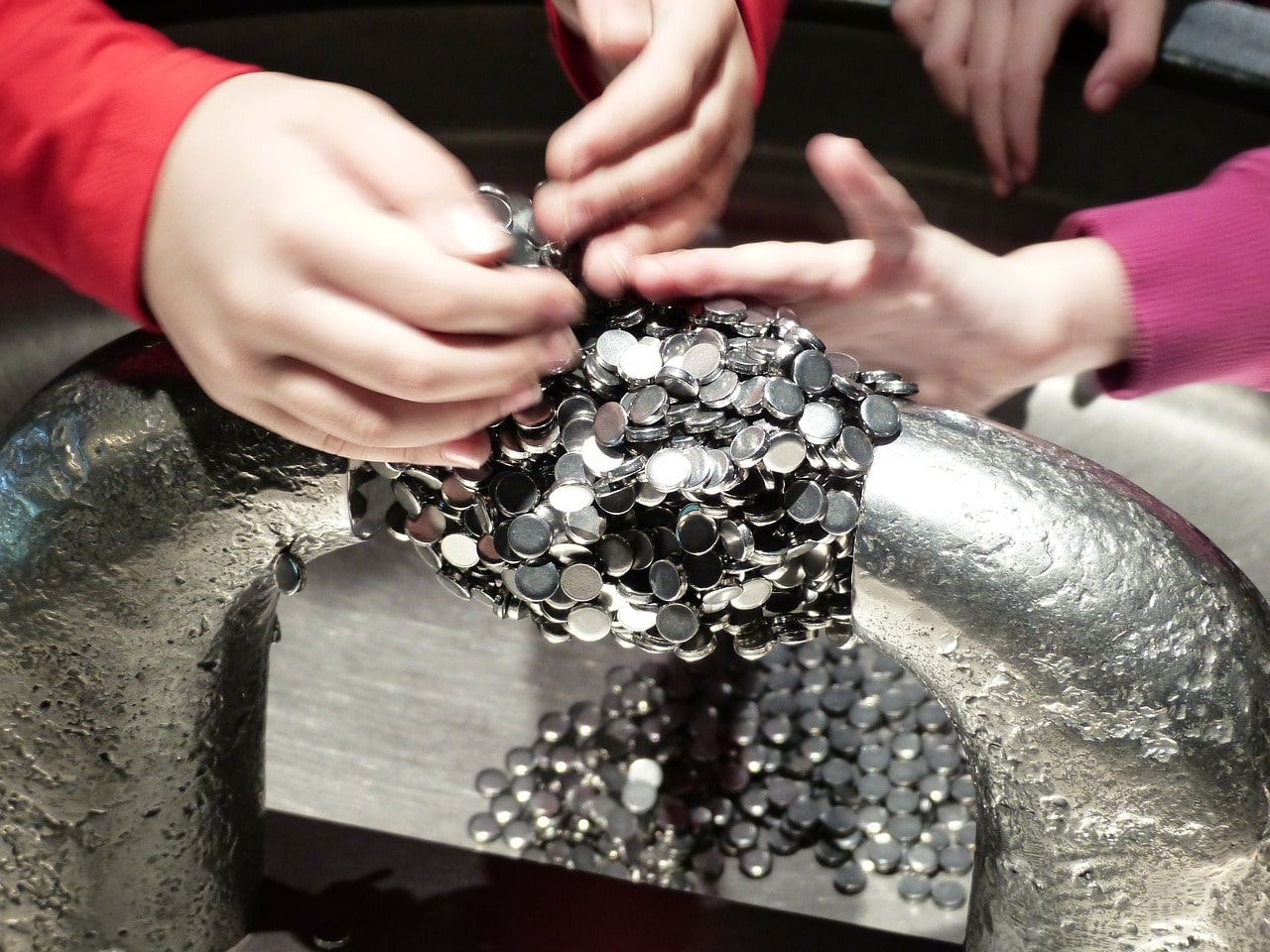
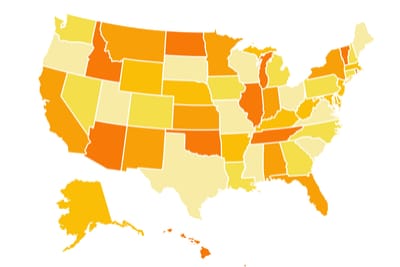

Leave a Reply